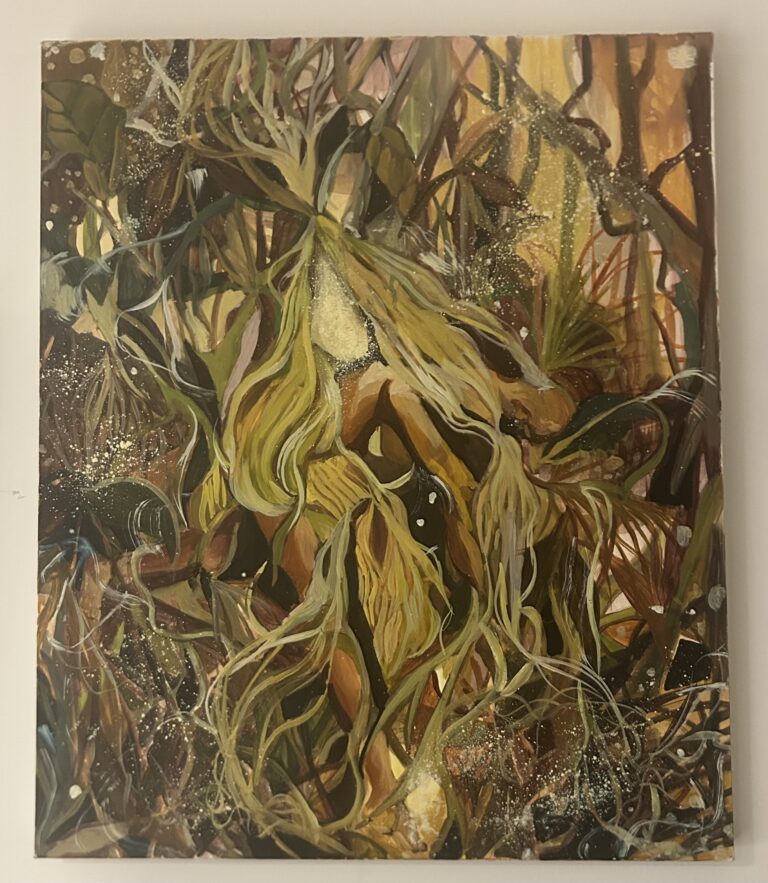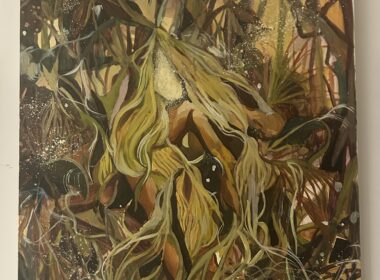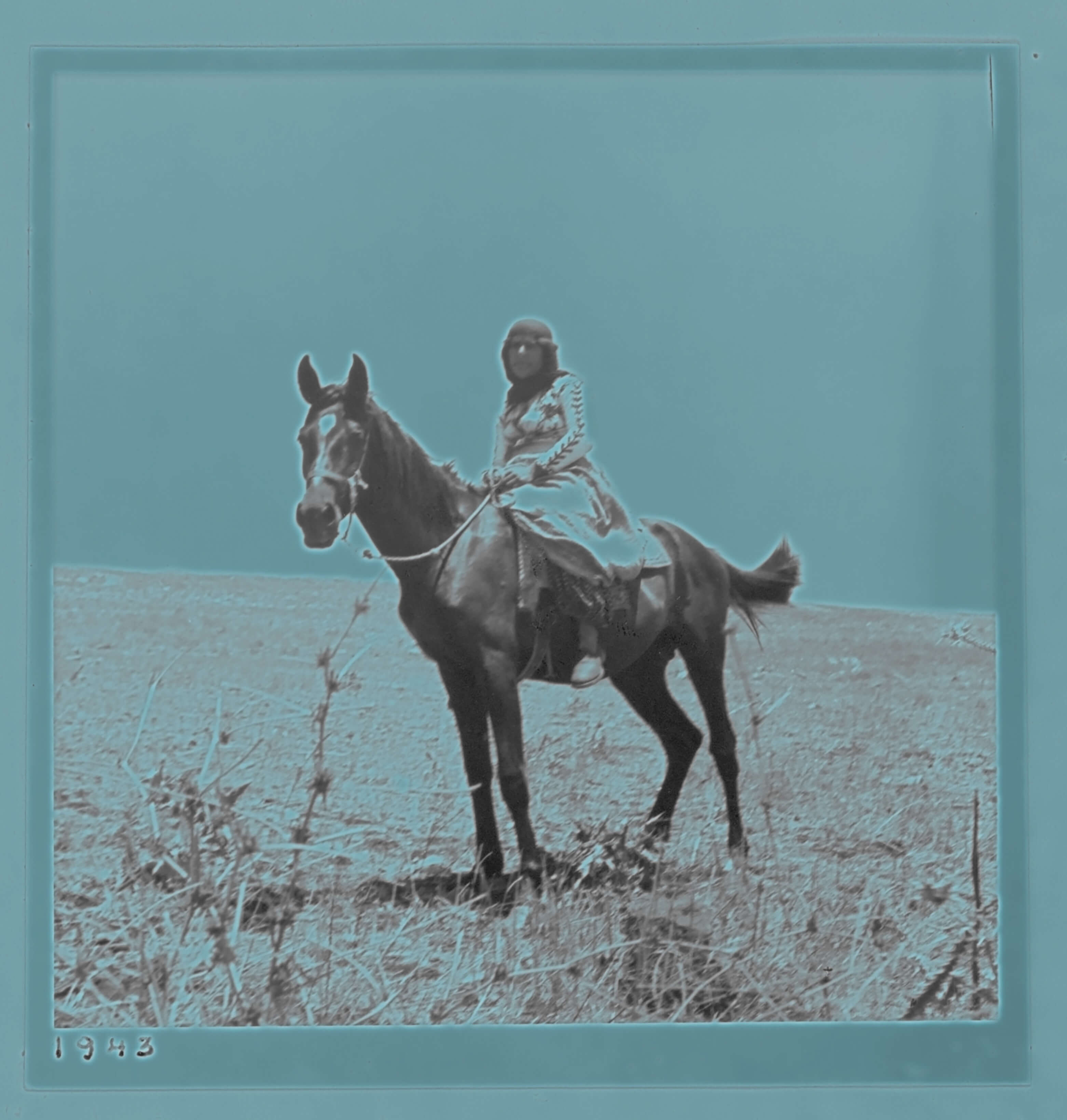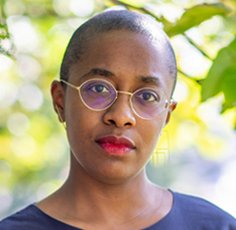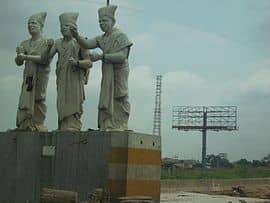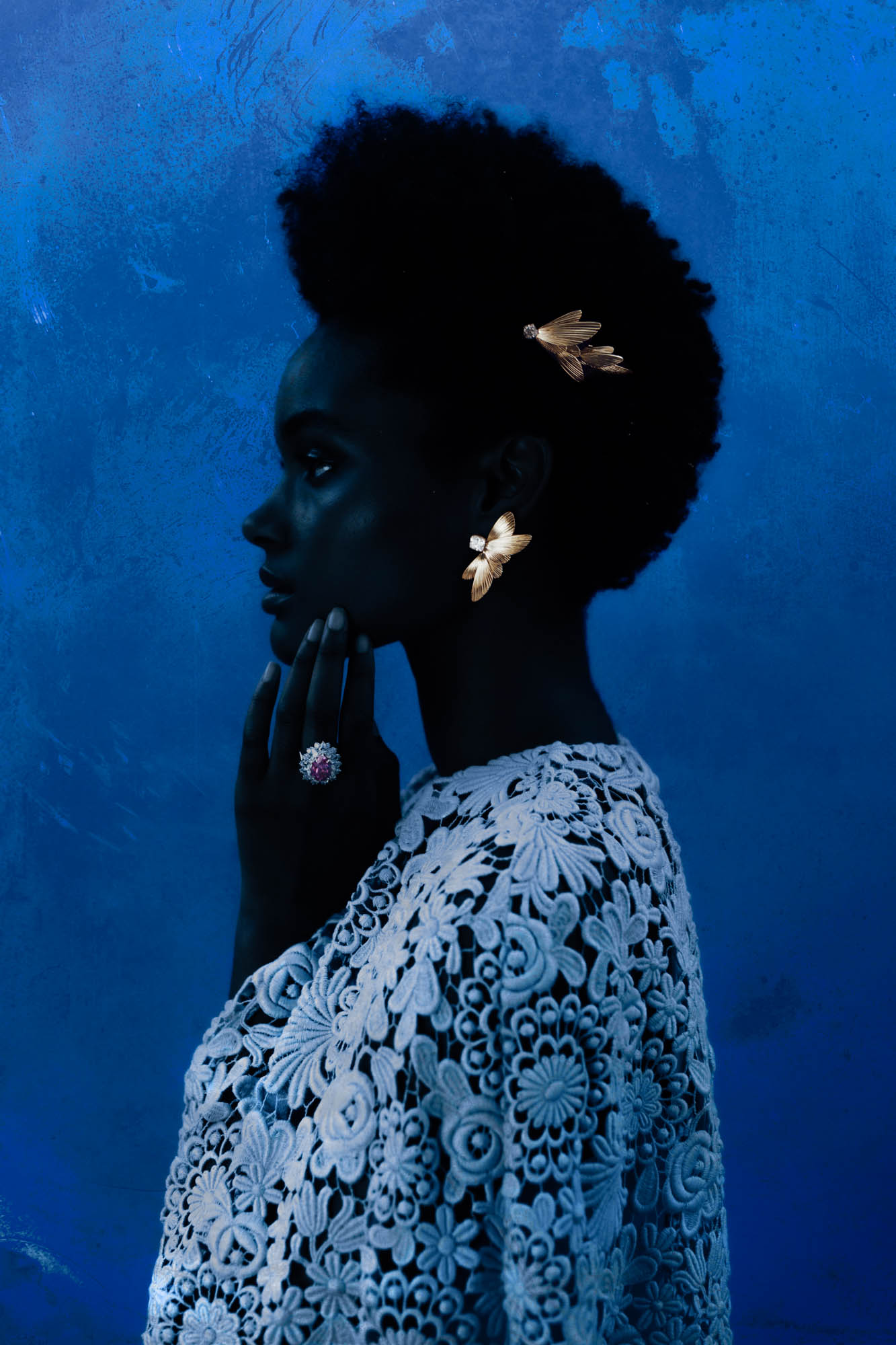Above: The Neon Glow of the Rider by Jumana Emil Abboud. Courtesy of Jumana Emil Abboud.
What do you know about Palestine? Sadly, the bitter conflict with Israel likely comes first to mind. Palestinian artist Jumana Emil Abboud is well aware of this, but wants to tell you the stories that you probably don’t know; the tales of powerful talismans and underwater spirits that pre-date the heartrending stories of loss and seemingly unending turmoil that dominate the headlines.
“I want to give my audience an awareness of Palestine beyond the political narration. I want them to see the Palestine that I love, the homeland and landscape that I feel close to,” says Emil Abboud over the phone from her home in Jerusalem.
Exploring this intimate connection between the soul of a people and a sense of place lies at the core of Abboud’s new show Out of the Shadows III, which premieres at Miami-Dade College Museum of Art and Design this Friday, February 23rd. Weaving together poetry, film, drawings and oral history onstage with filmmaker Issa Freij, Emil Abboud maps these stories and landscapes and ushers her audience into a vanishing realm of spirit and history, reflecting upon her experiences there. The performance is being staged as part of Living Together, MOAD’s cross-disciplinary series of performance art, film and video screenings, talks, and workshops that reflect “the cultural, social, and political realities of how we live now.”
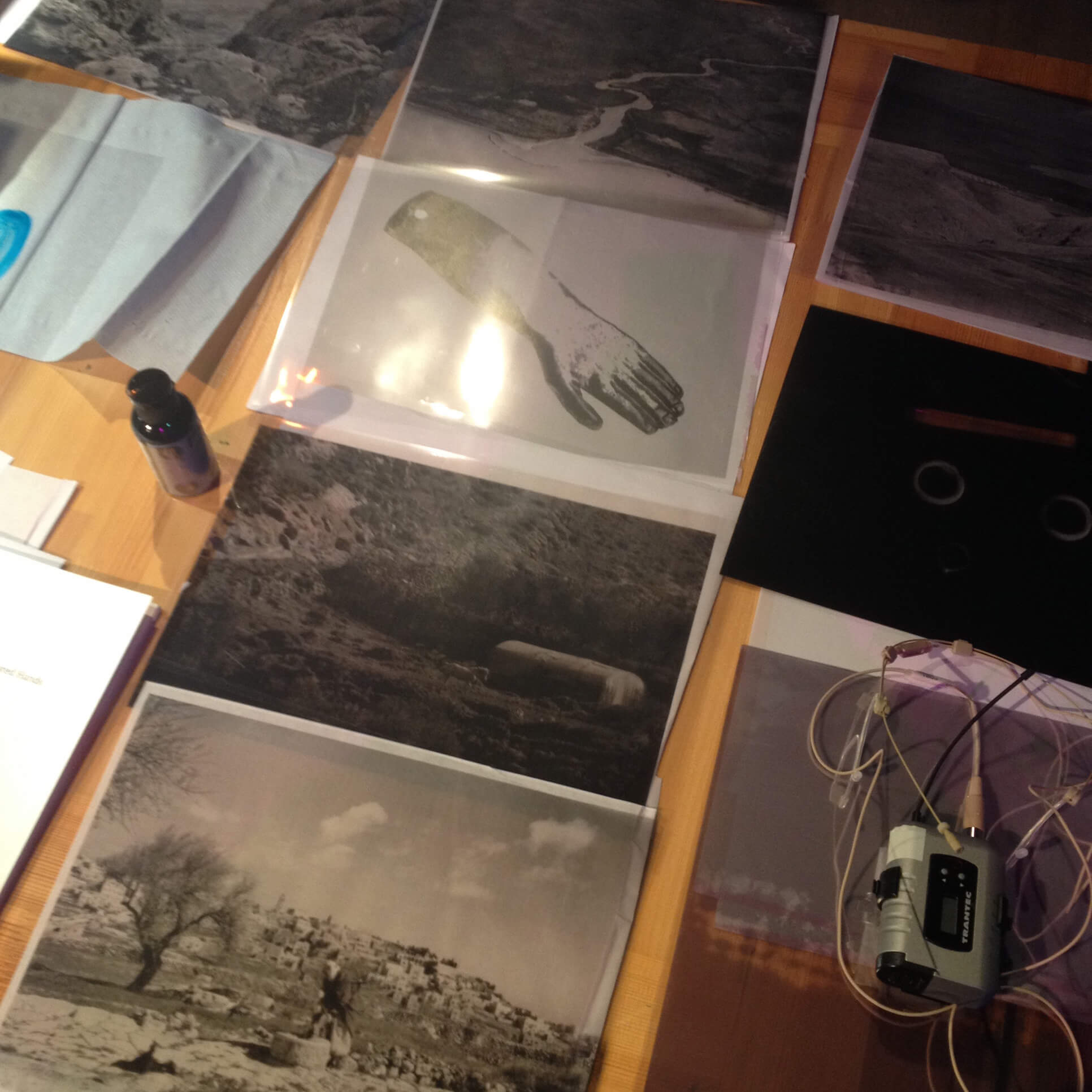
Above: Courtesy of Jumana Emil Abboud
Emil Abboud’s interest in the mythology of Palestine began with the stories she was told as a child by her aunt and grandmother before her family emigrated to Canada. The stories would live with her for 13 years as her connection to her homeland strained across time and oceans.
“When I returned to Palestine, I felt very disconnected to the place that was meant to be my home,” recalls Emil Abboud. “I started looking for ways to reconnect.”
With the tradition of communal storytelling now slipping away, and her own family members having passed away or unable to remember the old tales, Emil Abboud embarked on a mission to rediscover the stories that lingered in her heart. She would come upon the tome Speak Bird, Speak Again: Palestinian Arab Folktales by Ibrahim Muhawi and Sharif Kanaana, which collected several of these stories. She would also learn of Tawfiq Canaan, a doctor, and researcher in the 1920s whose strapped patients would often pay him with votifs, talismans, and stories which he would dutifully put down on paper, many of them for the first time. Along her journey, Emil Abboud would learn that many of these tales were connected to specific landmarks: enchanted caves said to be haunted by freakish goulehs; magical ponds both curative and poisonous. She set out to map them.
“These stories came from this very innocent sense that we need to respect these places — the water source, the fields of corn, the vine, the orchard — through a belief that you are not the only one sharing the space,” says Emil Abboud. “You’re sharing it with both good and bad spirits and there’s a balance that you have to find so you do not harm the spirit, otherwise you’ll be attacked.”
This sacred, delicate balance takes on profound resonance when considered against the conflict that scars the land today. It also inspires audiences to consider landscapes across the world burdened by everything from overdevelopment to war and even simple neglect.
“Whenever I tell these stories, I try to draw a connection to the place where I’m telling the story,” explains Emil Abboud. “For example, if I’m telling the story in Gateshead in England, I try to make a connection to a nearby river. I try to make a connection to contemporary life, and I find that audiences can then connect to the performance and stories because they feel like there is something close to them.”
It is Abboud’s hope that audiences begin to chart territories both within and around them that have been both overlooked and contested. There, she says, treasure awaits.
“I’m a firm believer that a large part of our history is unwritten, and is connected to mythology that is within us,” says Emil Abboud. “I think people should explore that.”
_____________________
For more information and tickets free with RSVP, please visit: mdcmoad.org
